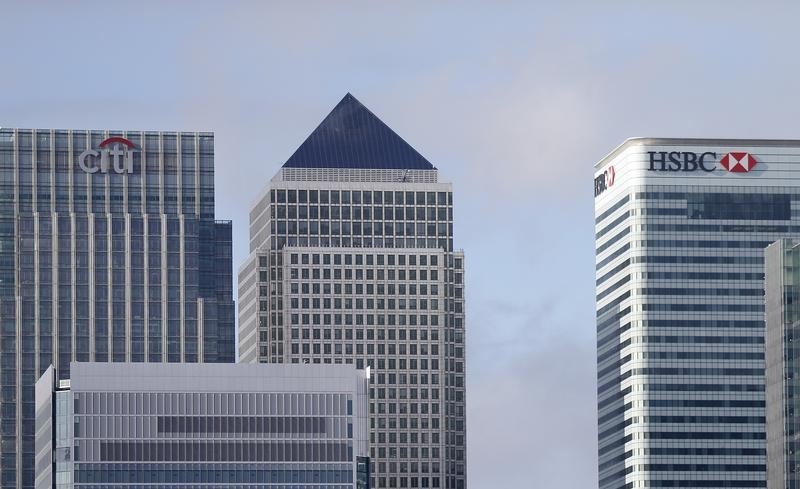By Steve Slater
LONDON (Reuters) - British banks and financial firms could face a compensation bill of up to 33 billion pounds ($52 billion) for not being transparent about commission charges if a landmark legal ruling is applied broadly across the industry, a research firm has estimated.
The study from Autonomous, chaired by a former financial services minister, follows the Supreme Court decision that a loans company broke consumer protection rules by failing to tell a customer a payment protection insurance (PPI) policy they bought included a big commission charge.
Autonomous said if regulators decide the ruling should be applied to PPI sales across the industry - and even sales of other financial products - firms could face a compensation bill totalling about 33 billion pounds in a "worst-case" scenario.
That would surpass the mammoth compensation costs British banks already face for mis-selling PPI; they have set aside more than 26 billion pounds, in the costliest scandal to hit the financial sector to date, and customers continue to make claims.
"In essence this ruling appears to open up a new angle for PPI mis-selling claims, based on commission payment (as opposed to the PPI policy)," Autonomous analysts said, according to a copy of the research seen by Reuters.
"If applied to other products (e.g. store cards and auto finance), this case could lead to a whole new wave of consumer claims for the UK banks, with a bill which could be even higher than the current PPI tally," the study said.
Autonomous, which rarely distributes its research to the media, declined to provide the report to Reuters or provide comment for this article.
Both Barclays (L:BARC) and Royal Bank of Scotland (L:RBS) have warned in the last two days they could suffer "material" losses from the ruling, the first time banks have acknowledged risks to their results.
'REAL RISK'
PPI policies were supposed to protect borrowers against sickness or redundancy, but were often sold to those who would have been ineligible to claim. Banks made billions of pounds from the policies, which were often aggressively sold.
The court ruling in November found that Paragon Personal Finance breached the Consumer Credit Act by failing to tell a customer their policy included a big commission paid to Paragon and a broker. The case was brought by Susan Plevin over a policy sold in 2006, and has become known as the Plevin case.
The Financial Conduct Authority (FCA) has said it plans to gives its view this summer on the impact of the decision on complaints about PPI.
If the regulator says that ruling should be applied to PPI and other sales of financial products it could allow Britons to go back over millions of policies and seek compensation.
"There is, in our view, a small but very real risk that the implications of the Plevin judgement could quickly snowball into a much bigger issue, beyond PPI," Autonomous said in the note dated July 27 and written by banks analysts Christopher Cant and Manus Costello.
"This implies a possible worst case cost to the industry on point of sale finance of about 33.5 billion pounds," added the research firm, which is chaired by Paul Myners.
It said if only 50 percent of customers claimed, in line with response rates on PPI, the cost would be 17 billion pounds.

Both Barclays and RBS said they were monitoring developments. "At this stage, as there remains considerable uncertainty regarding the application of the Plevin decision (including to previously settled cases), it is not practicable reliably to estimate the potential impact on RBS, which may be material," RBS said on Thursday.